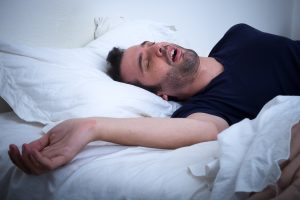
This disorder is associated with repeated pauses during sleep, which can leave you gasping for air. You might not fully awaken and be aware that this is happening, but you may feel excessively sleepy during the day or suffer other negative health effects, such as high blood pressure and stroke.
In this blog, the sleep specialists at eos sleep will explain how oral appliances can help many patients who have sleep apnea.
What causes snoring and sleep apnea?
The noise you hear when you or someone else snores is caused by an obstruction in the back of the mouth and nose that interrupts the free flow of air. When the airway is obstructed, the soft palate and uvula strike against one another and vibrate, causing the sound that’s associated with snoring.
Snoring may be a symptom of obstructive sleep apnea, which is caused by the collapse or narrowing of the upper airway.
What treatments are available?
A CPAP machine is a common form of treatment. This machine uses a steady stream of forced air delivered through a hose to a mask that you wear at night in order to help keep your airways open. However, many people find it uncomfortable to use and use CPAP only sporadically or abandon its use completely.
In some cases, oral appliances can be used as an alternative to a CPAP machine.
How do oral appliances work?
Oral appliances look similar to sports mouth guards or orthodontic retainers, and they’re only worn while you sleep. These custom-fitted devices can help patients who have snoring or mild to moderate obstructive sleep apnea by helping to keep your airway open. This leads to a reduction in symptoms and an increase in the amount of oxygen in your blood.
There are two main types of oral appliances:
- Tongue retaining appliances – which hold the tongue forward during sleep, keeping it from collapsing into and obstructing your airway. This can help alleviate issues such as a large tongue or tonsils, a long uvula, or a tongue that relaxes too much during sleep
- Mandibular advancement devices – which hold the airway open by gently repositioning the mandible (lower jaw) and tongue forward. It can help open your airway while improving the muscle activity of the tongue. This improves the strength of the airway, making it less likely to become obstructed.
If you’re experiencing snoring or excessive daytime sleepiness – or have been diagnosed with sleep apnea but are looking for an alternative to CPAP – make an appointment today with eos sleep to discuss oral appliances. We’ll talk with you about your medical history, symptoms, and other forms of treatment you ‘ve tried. Our doctors will recommend the least invasive treatment options possible to help you sleep and breathe easier.
